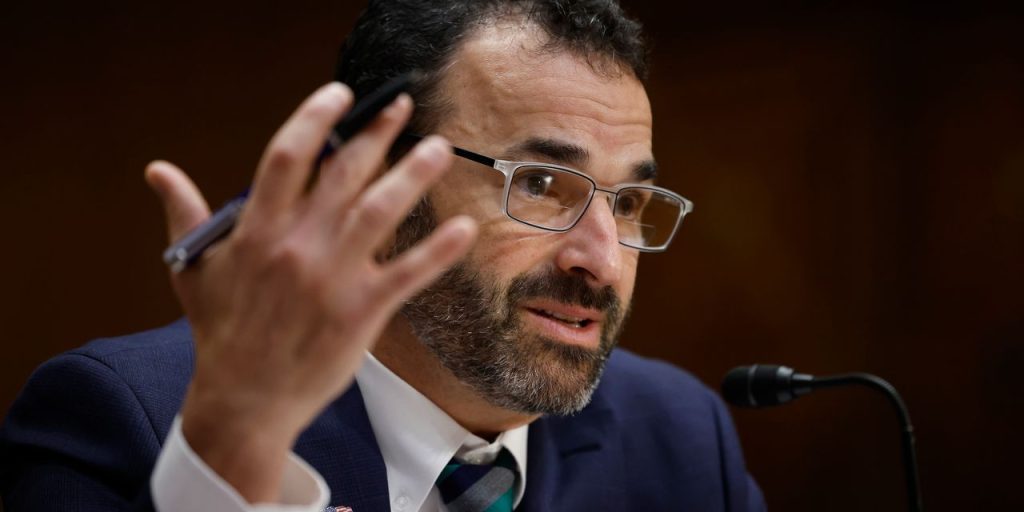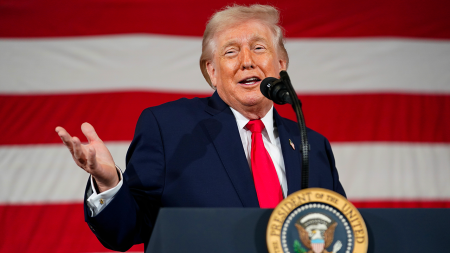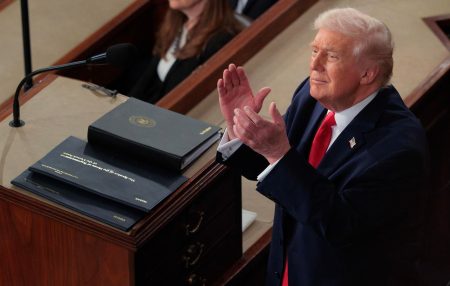U.S. taxpayers will stop seeing the taxman at their door with questions about their tax debts and income after the Internal Revenue Service announced a policy shift Monday to end most unannounced in-person visits.
The policy change is part of the agency’s efforts to remake itself into a tax collector with better customer service and to lower the temperature on interactions between taxpayers and the IRS. It’s also a bid to undercut scammer claims that IRS staffers will show up at people’s doors if they don’t hand over cash, officials say.
When the IRS has questions about unpaid taxes or unfiled tax returns, it primarily initiates contact through the mail.
For decades, job duties for IRS revenue officers have included in-person visits to resolve open questions about a person’s taxes.
Aside from some narrow exceptions, those visits will no longer be part of the job, IRS Commissioner Danny Werfel said Monday. The policy change is effective immediately, and revenue officers will now mail letters to schedule a meeting, instead of making an unannounced visit.
When the IRS is unable to reach a taxpayer, Werfel said officers can eventually escalate their attempts to the level of tax levies and liens on income. Those steps can also be carried out remotely.
Revenue officers made “tens of thousands” of unannounced visits per year under the old rules, the IRS noted. Revenue officers were seeking tax debts with a median amount of $110,000, Werfel told reporters on Monday.
The current exceptions include serving subpoenas and summonses in person. They also include “sensitive enforcement activities involving seizure of assets” — particularly assets that could be moved beyond the government’s reach, the IRS said.
There are “less than a few hundred” of these types of unscheduled visits yearly, the IRS noted.
“Changing this long-standing procedure will increase confidence in our tax administration work and improve overall safety for taxpayers and IRS employees,” Werfel said in a statement. IRS revenue officers, who are unarmed, have long had concerns about their own safety during in-person visits, he noted.
After an influx of funding last year from the Inflation Reduction Act, the IRS is scrutinizing more returns filed by wealthier taxpayers while also working to become more accessible to most taxpayers.
In the run-up to the passage of the Inflation Reduction Act, some Republican critics warned that the IRS would be taking an aggressive stance with taxpayers while also building up its criminal investigation division, whose officers are the only IRS agents permitted to carry firearms as part of their jobs. Werfel has insisted there are no plans to increase the share of the IRS workforce that the criminal investigation division represents.
The policy shift comes as imposter scams increasingly plague consumers. People reported more than 50,000 such scams, in which scammers claim to be government agents, in the first quarter of 2023, according to Federal Trade Commission data.
“These [unannounced] visits created extra anxiety for taxpayers already wary of potential scam artists,” Werfel said. “At the same time, the uncertainty around what IRS employees faced when visiting these homes created stress for them as well. This is the right thing to do and the right time to end [such visits],” he said.
“The only losers with this change in policy are scammers posing as the IRS,” Werfel added.
Read the full article here















